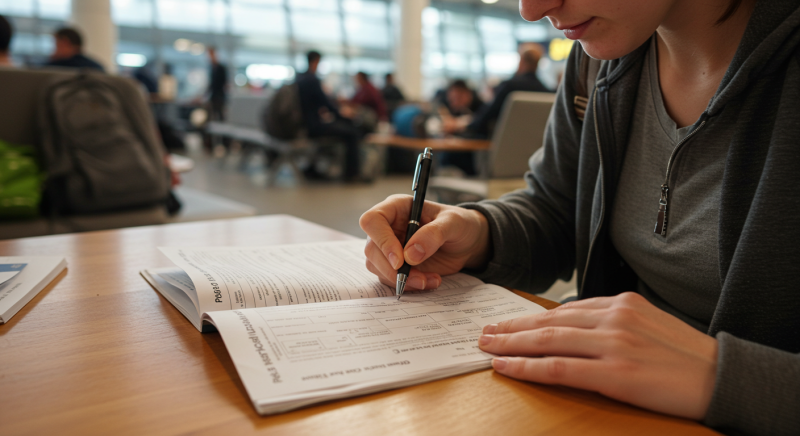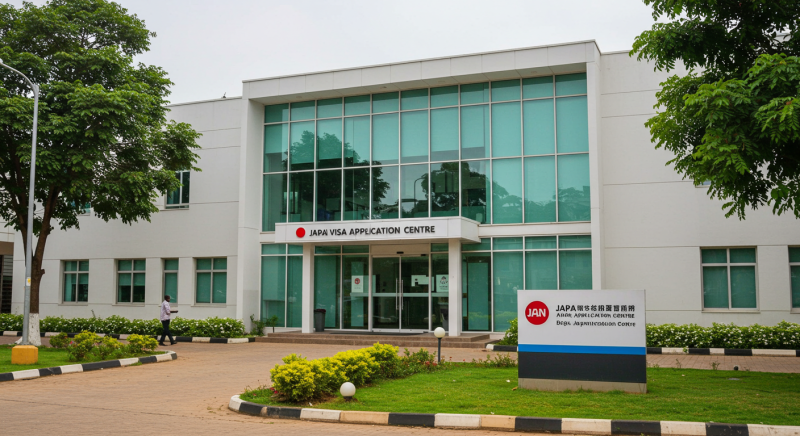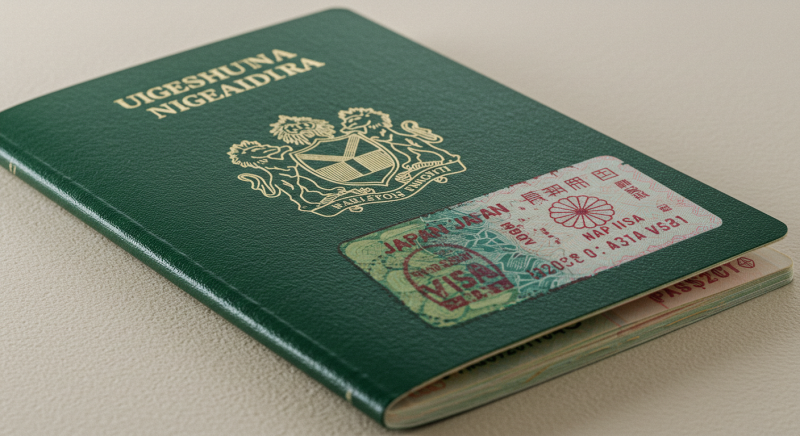In 2024, Japan welcomed a record-breaking 36.87 million foreign visitors, surpassing its previous high of 31.9 million in 2019. This surge in tourism, driven by factors like the weak yen and global events, has led to updates in Japan’s visa policies to manage the increasing number of travelers. Reuters+1Reuters+1
Key Takeaways
-
Nigerian citizens must obtain a visa before traveling to Japan.ng.emb-japan.go.jp+1TravelVisasExpert+1
-
Visa applications are processed through JVACs in Abuja and Lagos.VisaGuide+4ng.emb-japan.go.jp+4ng.emb-japan.go.jp+4
-
Applicants need to prepare specific documents, including a valid passport, completed application form, photograph, travel itinerary, and bank statements.TravelVisasExpert
-
Visa fees vary based on entry type, with additional service and courier charges applicable.VFS Global+1ng.emb-japan.go.jp+1
-
Japan plans to introduce the JESTA system by 2030 for enhanced immigration control.

Understanding the Requirement for Japan Travel Visa
Before planning a trip to Japan, it is essential for Nigerian citizens to fully understand the requirement for Japan travel visa. Japan has a structured immigration policy, and travelers from Nigeria are not visa-exempt. This means that every Nigerian traveler must obtain a valid visa prior to entering Japan, whether the visit is for tourism, business, academic exchange, family visits, or cultural events.
The requirement for Japan travel visa is based on ensuring that all foreign nationals meet Japan’s entry standards and do not pose risks to national security, public health, or economic stability. Japan maintains high standards for immigration, and the visa process is designed to evaluate an applicant’s travel intentions, financial readiness, and likelihood of returning to their home country after the visit.
There are different categories of visas available, and the specific requirement for Japan travel visa may vary depending on the purpose of travel. For most short-term visits such as tourism or family visits, applicants will need to apply for a temporary visitor visa. This is a single-entry visa that allows a stay of up to 90 days. For business-related trips, the visa requirements include additional documentation, such as invitation letters from Japanese companies and confirmation of ongoing partnerships.
One key aspect of understanding the requirement for Japan travel visa is knowing that Japan does not offer visa-on-arrival services for Nigerian passport holders. This means that travelers must obtain their visa before departing Nigeria. Attempting to travel to Japan without a visa will result in being denied boarding by the airline or denied entry by Japanese immigration authorities upon arrival.
Another important part of the requirement for Japan travel visa involves financial and personal documentation. Japan needs to confirm that visitors have enough financial means to support themselves during their stay and do not intend to seek employment or overstay their visa. Travelers must also demonstrate that they have a clear and legitimate reason for entering the country, supported by verifiable documents such as flight bookings, hotel reservations, or invitation letters from friends or family.
The requirement for Japan travel visa also includes personal background checks and identity verification. The Japanese immigration process is thorough, and any false or misleading information in the visa application can result in denial. Applicants must be honest, transparent, and consistent in all submitted forms and documents.
Additionally, Japan places emphasis on health and safety, so part of the requirement for Japan travel visa includes compliance with any public health guidelines, such as vaccinations or quarantine protocols when required. Although current regulations may be relaxed compared to previous years, travelers should still check for the latest updates to avoid surprises at the border.
Understanding the requirement for Japan travel visa means more than just gathering documents—it’s about being fully prepared to meet Japan’s expectations for lawful entry. The process may seem demanding, but it’s designed to ensure that every visitor has a clear purpose, a safe plan, and the ability to return home as scheduled. By recognizing and respecting these visa requirements, Nigerian travelers can enjoy a smoother and more enjoyable experience while visiting one of the world’s most culturally rich and technologically advanced countries.
Types of Japan Visa
To meet the requirement for Japan travel visa, it’s important to apply for the correct visa type based on the specific reason for your visit. Japan offers several visa categories, each designed to accommodate different purposes such as tourism, business, education, work, or family reunification. Understanding which visa type applies to your situation is a fundamental part of successfully navigating the visa process.
1. Short-Term Visitor Visa
The short-term visitor visa is the most common type applied for by Nigerian citizens. This visa is typically issued for tourism, visiting friends or relatives, attending conferences, or participating in cultural or sports events. It usually allows a stay of up to 90 days and does not permit employment. For many travelers, fulfilling the requirement for Japan travel visa means submitting a complete application under this category, along with proof of accommodation, itinerary, and financial capacity.
2. Business Visa
The business visa is granted to individuals who intend to visit Japan for professional reasons. This includes attending business meetings, negotiating contracts, or exploring investment opportunities. To meet the requirement for Japan travel visa in this category, applicants must provide official letters of invitation from the host company in Japan, a detailed schedule of meetings or events, and proof of their employment or business ownership in Nigeria.
3. Transit Visa
The transit visa is required for Nigerian travelers who need to pass through Japan en route to a third destination. While not commonly issued unless the layover exceeds 24 hours or includes leaving the airport, it is still part of the requirement for Japan travel visa in specific cases. Applicants must show confirmed onward travel tickets and a valid visa for the final destination, where applicable.
4. Student Visa
The student visa is for individuals accepted into Japanese academic institutions, including universities, language schools, and vocational colleges. To qualify under the requirement for Japan travel visa, the applicant must provide a Certificate of Eligibility (COE) issued by the Japanese Immigration Bureau, along with proof of financial support and admission documents from the educational institution. This visa allows long-term stay and part-time work under certain conditions.
5. Work Visa
Japan offers a variety of work visas depending on the profession. This includes visas for engineers, IT professionals, teachers, skilled laborers, researchers, and more. Meeting the requirement for Japan travel visa in this category involves receiving a job offer from a Japanese employer, who must also provide a Certificate of Eligibility. This visa allows long-term residence and employment under strict conditions.
6. Spouse or Dependent Visa
This visa is intended for individuals who are married to Japanese citizens or are dependents of foreign nationals working or studying in Japan. To meet the requirement for Japan travel visa in this case, applicants must submit marriage or birth certificates, proof of the sponsor’s legal status in Japan, and documents showing financial capability to support the family during the stay.
7. Cultural Activities Visa
The cultural activities visa is for people intending to participate in unpaid cultural or academic pursuits such as traditional arts, martial arts training, or research. To fulfill the requirement for Japan travel visa under this category, applicants must show detailed plans, proof of sponsorship or hosting institutions, and evidence of financial support.
8. Medical Visa
Japan also offers medical visas for those seeking medical treatment in the country. This includes both the patient and any accompanying caregiver. As part of the requirement for Japan travel visa, applicants must provide documentation from the Japanese medical institution, treatment plans, and financial evidence covering the duration of the stay.
Each of these visa types serves a specific purpose and requires different sets of documentation. Choosing the wrong visa type or submitting incomplete information may result in delays or rejections. Therefore, understanding which visa suits your travel goals is key to satisfying the requirement for Japan travel visa and ensuring a smooth application process.

Application Process for Nigerian Citizens
Navigating the application process is a major part of meeting the requirement for Japan travel visa for Nigerian citizens. The Government of Japan has made recent updates to streamline and organize the way visa applications are submitted, making the process more transparent and accessible for Nigerian travelers. Whether you’re visiting Japan for tourism, business, a conference, or to visit friends and family, understanding each step of the application is crucial to fulfilling the requirement for Japan travel visa successfully.
Starting from March 3, 2025, all applicants from Nigeria must process their visa applications through the Japan Visa Application Centres (JVACs), located in Abuja and Lagos. These centers operate under the management of VFS Global, a trusted international visa processing firm. The Japanese Embassy no longer accepts direct visa submissions, except in limited diplomatic cases. This centralization is intended to offer a smoother, more efficient experience for all applicants while ensuring strict adherence to the requirement for Japan travel visa.
To begin the application, Nigerian citizens are required to book an appointment online through the official VFS Japan website. Walk-in applications are not accepted, and booking in advance is mandatory. This appointment system helps manage the high volume of visa requests and ensures applicants are attended to efficiently. Applicants must appear in person for their scheduled appointment—this is non-negotiable and a key part of the requirement for Japan travel visa to verify identity and receive biometric data when necessary.
Once your appointment is confirmed, you’ll need to prepare and submit your complete visa application documents to the JVAC. All original documents, including the visa form, passport, photographs, and supporting documents, must be submitted at the time of the appointment. The staff at JVAC will review your documents to ensure they align with the standard requirement for Japan travel visa guidelines. However, they are not responsible for evaluating or influencing the outcome—final approval lies solely with the Japanese Embassy in Nigeria.
The processing time for a Japan visa typically takes about 12 working days at the Abuja center and 14 working days at the Lagos center. These timeframes begin from the day the application is officially received by the Embassy, not necessarily the day it was submitted to JVAC. Delays can occur if any part of the documentation is missing or incomplete, which is why double-checking against the requirement for Japan travel visa checklist is strongly advised before submission.
As part of the process, applicants must also pay the visa fee and service charge at the JVAC counter. The visa fees vary depending on the visa category—single or multiple entry. Payments can be made via POS or in cash, and applicants in Lagos may also incur an additional USD 30 courier fee due to logistics related to embassy processing. Being aware of and budgeting for these fees is another important element of meeting the overall requirement for Japan travel visa.
After submission, applicants can track their visa application status online using the VFS Global tracking tool. Notifications may also be sent via SMS or email if you opt into those services. Once the visa decision is made, you will be notified to collect your passport in person at the JVAC. Only the applicant or an authorized representative with proper identification and authorization will be allowed to collect the passport. This final step completes your journey in fulfilling the requirement for Japan travel visa.
In case the visa is denied, the embassy does not provide a detailed explanation. However, applicants are encouraged to reapply after identifying and addressing potential issues in their previous application. It’s also wise to consult with visa specialists or experienced travel consultants for guidance to better meet the requirement for Japan travel visa the second time around.
With a clear understanding of the application process, Nigerian citizens can confidently move forward in securing their travel documents. Every stage, from booking the appointment to collecting the approved visa, is tightly linked to the overarching requirement for Japan travel visa, and approaching the process with accuracy and preparation is the best way to ensure success
Essential Documents for Visa Application
Meeting the requirement for Japan travel visa begins with preparing a complete and accurate set of documents. Each document plays a critical role in helping the Japanese immigration authorities assess your travel intentions and eligibility. Below is a comprehensive explanation of the essential documents Nigerian applicants must provide when applying for a Japan visa:
A valid international passport is the cornerstone of the application. The passport must remain valid for at least six months beyond the date of your intended return from Japan. Additionally, it should have a minimum of two blank pages available for visa stamps. Without a valid passport, fulfilling the requirement for Japan travel visa is not possible.
The Japan visa application form is available for download on the official website of the Japanese Embassy or at the Japan Visa Application Centres (JVACs). Applicants must fill out the form accurately, using black ink or typing. All fields must be completed, and the form must be signed by the applicant. Incorrect or missing details may delay processing and jeopardize your ability to meet the requirement for Japan travel visa.
A recent passport-sized photograph is also required. The photo must meet Japan’s biometric specifications: 45mm x 45mm in size, taken within the past six months, with a plain white background and a clear view of the applicant’s face. The photo must be glued, not stapled, to the application form. Submitting a non-compliant photo could result in rejection, making it harder to satisfy the requirement for Japan travel visa.
The travel itinerary is another crucial document. This should outline your travel plans in detail, including your expected arrival and departure dates, flight information, hotel reservations, and daily schedule. Whether you’re visiting for tourism, business, or family reasons, having a clear and structured itinerary supports the legitimacy of your travel plans and aligns with the general requirement for Japan travel visa.
Applicants are also required to submit proof of financial capability, most commonly in the form of personal or sponsor’s bank statements. These should cover the last three to six months and reflect a stable financial situation. The Japanese government wants to ensure that applicants can cover their expenses during their stay, which is a major component of the requirement for Japan travel visa. A balance that convincingly supports your travel duration helps establish trust.
Depending on your employment or student status, supporting documentation may also be necessary. Employed individuals must include a letter from their employer confirming employment status, salary, and approved leave. Students must provide an enrollment letter and evidence of financial support from parents or guardians. If you’re self-employed, provide a business registration certificate and recent tax documents. All these fall under the broader umbrella of the requirement for Japan travel visa, as they help determine your intent to return to Nigeria after your visit.
For those visiting friends or family, an invitation letter from the host in Japan is mandatory. This should include the host’s personal details, a statement of relationship, and the reason for the visit. It must also be accompanied by a copy of the host’s residence card or Japanese passport. These documents strengthen the visa application by adding context, which is integral to the requirement for Japan travel visa assessment.
Finally, if a minor is applying, the application must be submitted with a notarized letter of consent from both parents or legal guardians. Birth certificates, school letters, and identification documents of the guardians are also part of the package. Ensuring the protection and proper documentation of minors is a key priority in Japan’s immigration procedures and part of the broader requirement for Japan travel visa standards.
Ensuring that all of these documents are correctly prepared and submitted will dramatically improve your chances of receiving a Japan visa. Missing or incomplete paperwork is the most common reason for visa delays or rejections. Understanding and fulfilling every part of the requirement for Japan travel visa is your first and most important step toward a successful journey to Japan.
Visa Fees and Charges
The visa fees for Nigerian applicants are as follows:Visalibrary+3VFS Global+3ng.emb-japan.go.jp+3
-
Single Entry: NGN 12,500VFS Global+1VisaGuide+1
-
Multiple Entry: NGN 25,000VFS Global
Additional charges include a service fee of approximately USD 3.17 and, for Lagos applicants, a courier fee of USD 30 for document transfers. All fees are payable via POS or cash at the JVACs. VFS Global+1ng.emb-japan.go.jp+1ng.emb-japan.go.jp+2ng.emb-japan.go.jp+2VFS Global+2
Introduction of JESTA: Future Changes in Visa Policy
Japan plans to implement the Japan Electronic System for Travel Authorization (JESTA) by 2030. This system will require travelers from visa-exempt countries to submit personal information online before arrival, enhancing security and immigration control. welt.de+3Wikipedia+3thesun.co.uk+3 Wikipedia+2thescottishsun.co.uk+2thesun.co.uk+2

READ MORE
